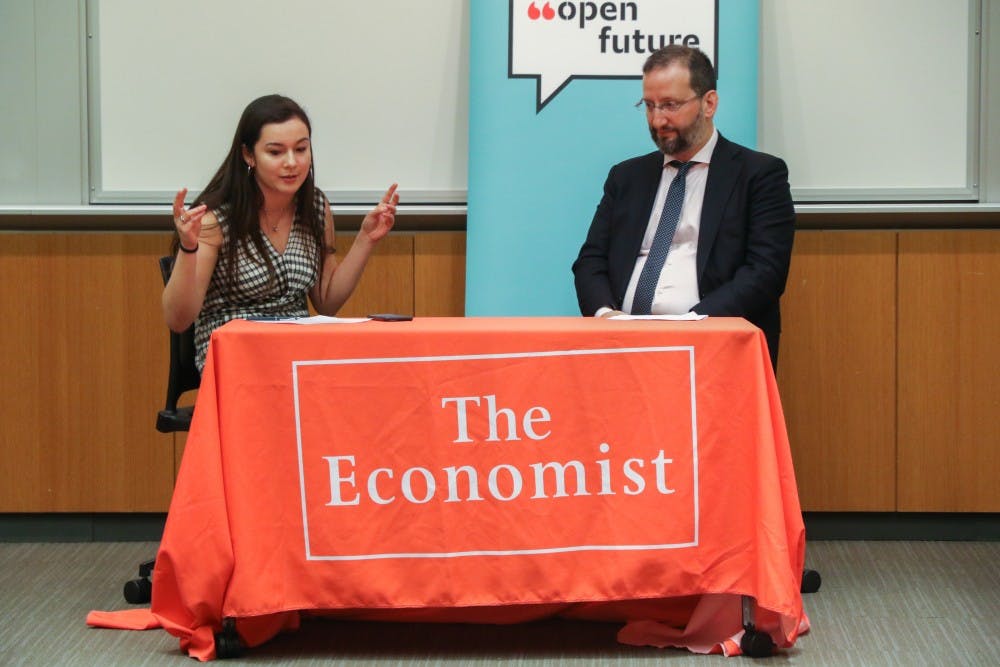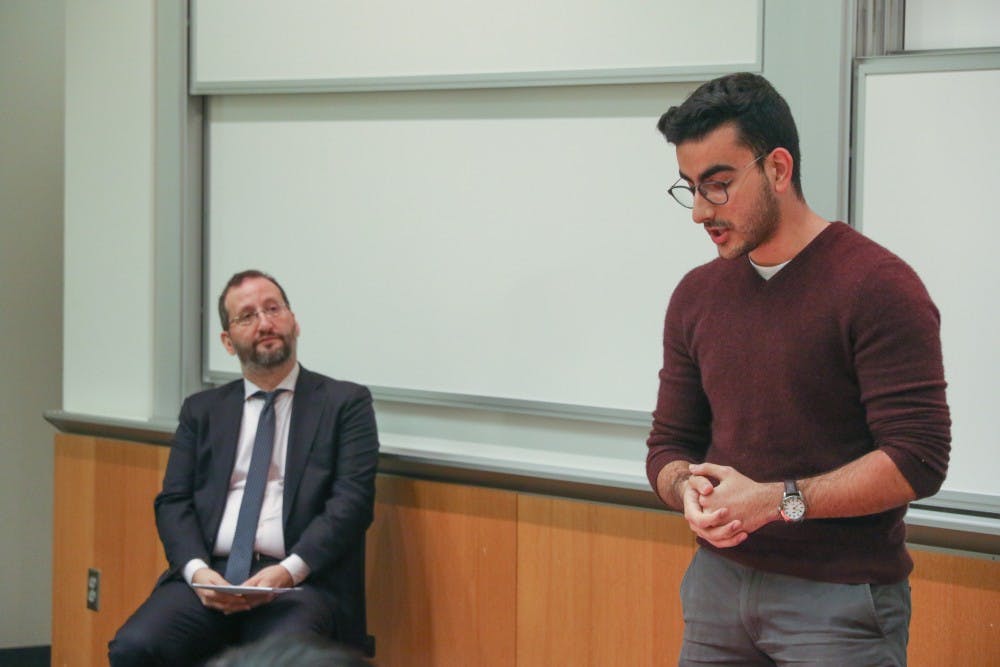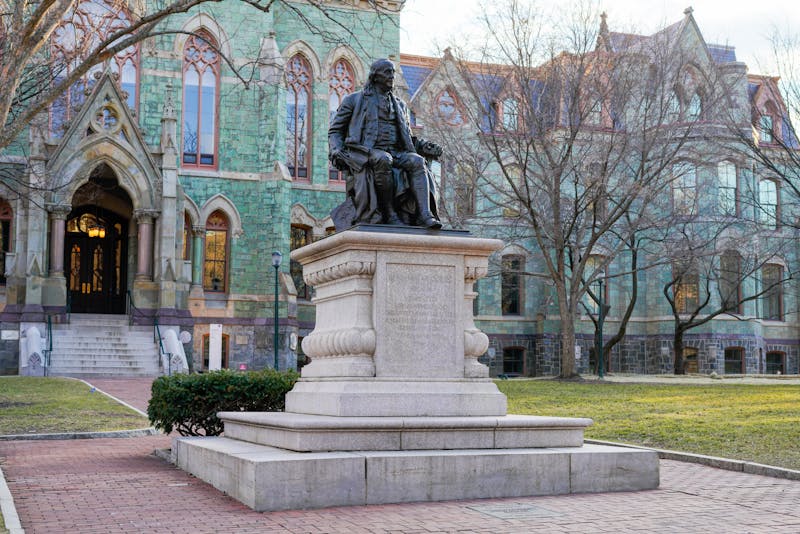
Penn Debate Society held an event Wednesday in coordination with The Economist magazine, which has been hosting debates around the country on university campuses as part of its Open Future Initiative.
At Penn, students debated the resolution: “Should businesses be free to refuse to disseminate ideas with which they disagree (such as baking a cake with a pro-gay message)?”
Many students were swayed by the debate. At the start of the debate, The Economist Media Editor Gady Epstein surveyed the audience and found that students in attendance supported both sides. At the end, all had been convinced by side "government" that businesses should be free to refuse to disseminate ideas with which they disagree.
The Economist's Open Future Initiative is a series of articles, debates, and events organized by The Economist to discuss five themes: “open borders, open ideas, open markets, open society, and open progress.” These are meant to encourage conversation about classical liberal values in “an age of populism, and in many parts of the world, of growing authoritarianism."
The Economist has fostered these conversations by hosting student debates on contemporary issues throughout the United States on campuses, including Dartmouth College, Stanford University, and the University of Chicago.
Some other debate topics have included free trade, open borders, political correctness, and regulating giants in technology.
Penn Debate Society President and College senior Alexandra Johnson said the group was excited to work with the magazine because the student members wanted to have a debate engaging “the larger Penn community and not just for ourselves.”
Johnson also said she and other debaters have been big fans of The Economist for a long time.
"It’s almost a cliché that everyone in Debate reads The Economist," Johnson said.
Johnson said organizers chose the topic of the debate because on a campus with many students holding progressive views, this topic was unique in that “it pits two traditional liberal values against each other — that is the protection of marginalized communities and freedom of speech and how to balance those two in the optimal way.”

In the debate, the side "government" argued that businesses should be free to refuse to spread ideas with which they disagree, arguing that it is a larger violation of individual liberty to force someone to do something they are against. Side "government" also argued that it can be offensive to marginalized communities when businesses feel compelled to go against their values if they cannot refuse to disseminate ideas with which they disagree.
Side "opposition," against the resolution, argued that businesses have a social contract with society and have an obligation to meet certain standards, including that everyone must be treated equally and that businesses treat people like outcasts when they refuse to disseminate the ideas of those who are marginalized.
Johnson hopes that the Debate Society can continue its relationship with the magazine.
“This is their first round of their collaboration with teams like us, but I’d love it if it became a reoccurring thing.”
The Daily Pennsylvanian is an independent, student-run newspaper. Please consider making a donation to support the coverage that shapes the University. Your generosity ensures a future of strong journalism at Penn.
Donate






